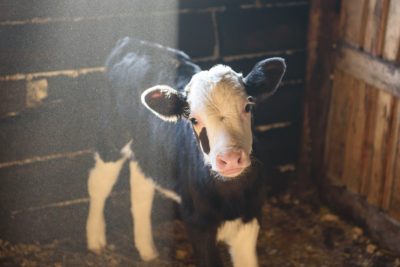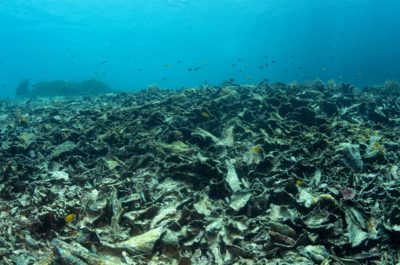Humans have wiped out 60 per cent of animal populations since 1970, with many scientists believing we are in the era of a sixth mass extinction, and the first to be caused by a species.[1]

The three leading causes of this unprecedented massacre are:
- Destruction of habitats, largely to create farmland
- Wild animals being eaten
- Fishing[2]
In fact, agriculture and over-exploitation (including fishing) are significantly greater threats to biodiversity than climate change.[3] Quite simply, eating animal products is destroying our wildlife.
Meat is driving the destruction of forests, as more and more land is needed for grazing and to grow feed. If we didn’t eat animal products, a lot less land would be needed, and the forests could remain intact.

Similarly, our desire for fish is decimating the oceans. More than 30 percent of the world’s fisheries have already been pushed beyond their biological limits or are in need of dramatic action to restore them,[4] and whole aquatic populations are on the verge of collapse.[5]
Vast nets drag trillions of fish from the water, and with them ‘by-catch’ – animals not commercially valuable but who are caught just the same. These include whales, dolphins, porpoises, sharks, starfish, sponges, turtles, and even diving sea birds like albatrosses.[6]
Many of us shed a tear when we saw what plastic pollution is doing to our oceans, but the harm caused by plastics is small fry compared with the wholesale devastation wreaked by fishing.
Switching to farmed fish instead will do little to protect the oceans, as wild fish are still caught to feed their farmed cousins.
Are you ready to give it a try? Take part in Veganuary and let us support you along the way.
References
1 Damian Carrington, ‘Humanity has wiped out 60% of animal populations since 1970, report finds’ The Guardian, 30 Oct 2018
[Accessed 1 December 2018]
2 Ibid
3 Jessica Aldred, ‘Agriculture and overuse greater threats to wildlife than climate change – study’, The Guardian, 10 Aug 2016 [Accessed 1 December 2018]
4 ‘Overfishing’, World Wildlife Fund [Accessed 1 December 2018]
5 Azua (Zizhan) Luo, ‘Ocean fish stocks on “verge of collapse”, says IRIN report’, New Security Beat, 28 Feb 2017 [Accessed 1 December 2018]
6 ‘New US regulations offer better protection from bycatch’, World Wildlife Fund, spring 2017 [Accessed 1 December 2018]












